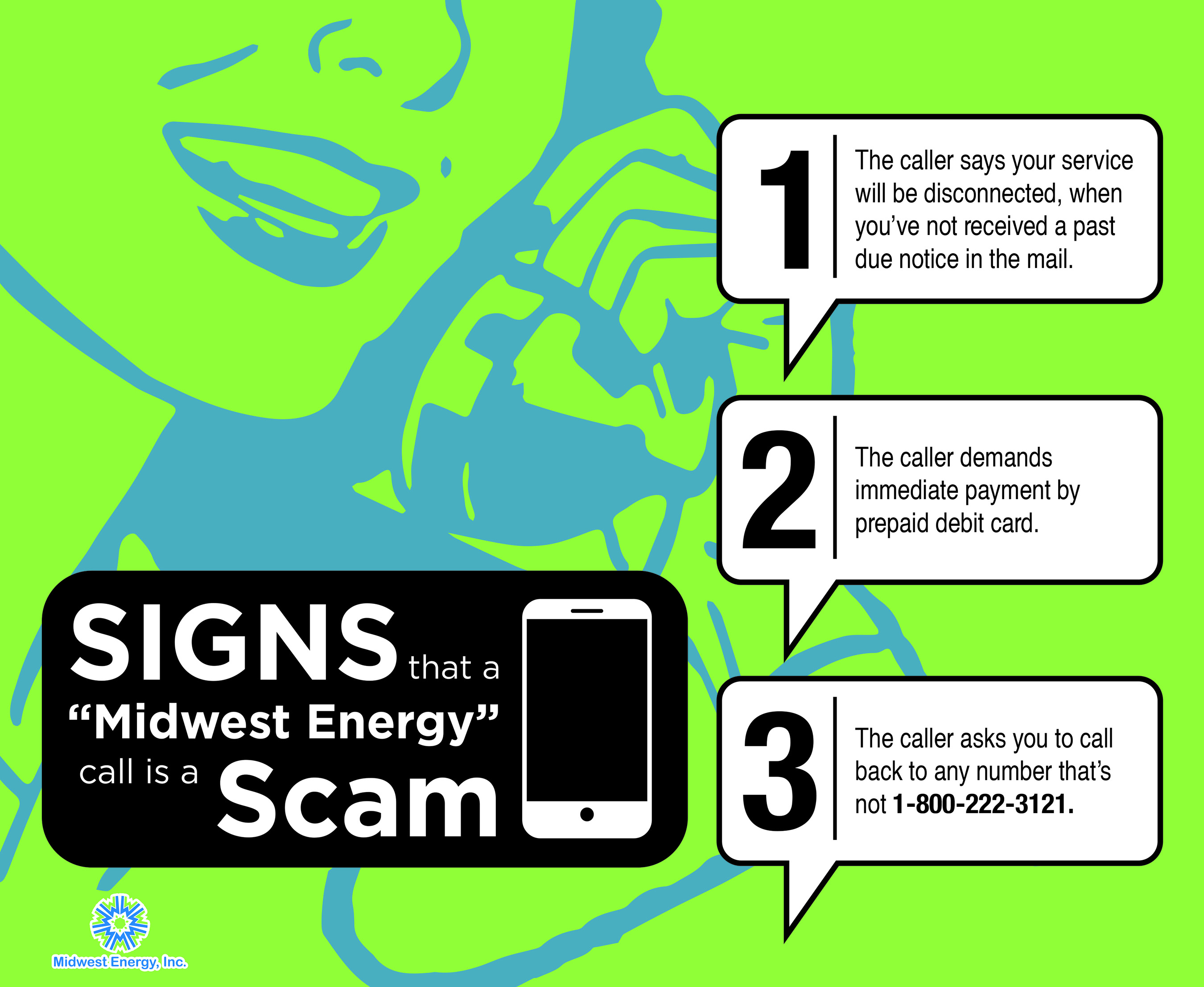Scam Artists Step Up Summer Calls
Phone and online scams are more prevalent than ever and utility customers are an easy target. From coast to coast, reports of scammers claiming to be utility companies are on an upsurge. Midwest Energy had more than 50 reports from customers in 2016 alone.
The most common scam Midwest Energy customers experienced were fraudulent calls warning of an outstanding bill that needed to be paid immediately or service would be disconnected. Customers were instructed to go to a nearby convenience store, purchase a prepaid debit card, and call the false company back with the card information.
An educated consumer is the best defense against scammers, but swindlers employ increasingly advanced tactics (like call ID spoofing) to lure people away from their better judgement, and summer is the perfect time for scammers to work their utility ruse.
“Nobody wants to be without air conditioning on a hot day,” said Michael Sadeghi, Midwest Energy’s Director of Customer Service. “Scammers are experts at creating confusion and a false sense of urgency, to get you to let your guard down.” 
Most customers who got these calls from scammers last year saw through the ruse, but a few didn’t, and lost hundreds or sometimes more than a thousand dollars to the scam. Like many phone and internet scams, financial loss was virtually impossible to recoup.
“A customer will never get a call from us demanding payment like that,” Sadeghi said. “The first contact for a delinquent account is always by mail, not an email or a phone call, and we never dictate a method of payment to the customer. How a customer chooses to pay is up to them,” he added.
To further protect consumers, utility companies are banding together to educate customers about scams and how to avoid them. Utilities United Against Scams (UUAS) is a project initiated to raise awareness of phone and online scams. Started by a Duke Energy Customer Service employee in Texas, UUAS brings utility companies together with FBI, Homeland Security, Better Business Bureau, US Hispanic Chamber of Commerce, and other groups to share best practices on spotting new scams, educating customers and reporting them to law enforcement.
Sadeghi said “Already, Midwest takes steps to educate customers about scams. We encourage customers to talk with family members and neighbors about these scams. And if anyone calls claiming to be Midwest Energy and you have doubts, simply hang up and call us at 1-800-222-3121,” he said.